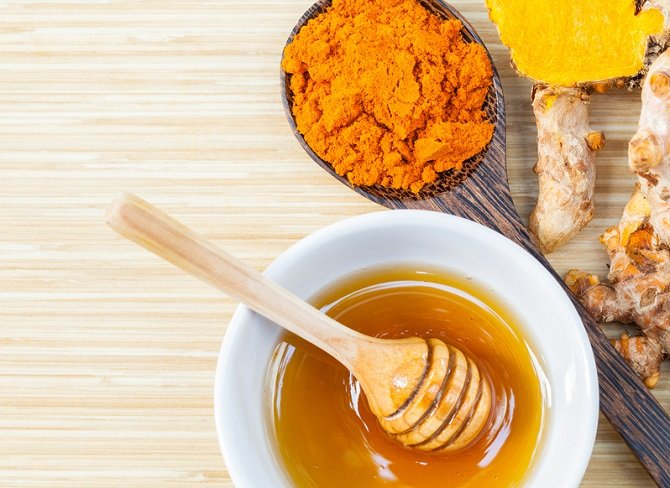The potential health benefits of turmeric tea are wide and varied, but one of the most interesting properties of this super-healthy drink is its ability to reduce joint inflammation and pain in patients with rheumatoid arthritis. But before we explore in detail why turmeric tea is so good at reducing arthritis pain and joint stiffness.
Why Turmeric Tea Is Good for Joint Pain?
Ayurvedic healers and other practitioners of traditional medicine often use turmeric tea to treat arthritis and other inflammatory conditions. In recent years, Western scientists have also recognized the strong anti-inflammatory and anti-arthritis properties present in turmeric.
According to a study published in the November 2006 issue of the journal Arthritis and Rheumatism, the three main curcuminoids in turmeric are responsible for its anti-arthritic effects.
If you have never followed a diet to treat rheumatoid arthritis, you may know that these herbs are considered foods rich in quercetin that are particularly good for arthritis patients due to the anti-inflammatory properties of quercetin. However turmeric tea may be a better natural remedy for inflamed joints.
Studies support its medicinal properties.
A study found that the curcumin and quercetin present in turmeric were able to alleviate the inflammatory aspects of rheumatoid arthritis; curcumin demonstrated more activity against arthritis than quercetin.
Most of the scientific research on turmeric and arthritis has focused on rheumatoid arthritis, but turmeric may also provide benefits for people with osteoarthritis, an age-related arthritis that is caused by wear and tear on the joints.
A study showed that a combination of curcumin with turmeric root extract and boswellia serrata extract was superior to some prescription drugs for relieving joint pain and people with osteoarthritis were able to walk with their improvement.
After the 4-week trial period ended, 93% of patients who received the herbal remedy turmeric and boswellia serrata extract could walk more than 1,000 meters, compared to 86% of patients who continued to consume the prescription medicine.
The beneficial effects of the herbal supplement were even more impressive when joint pain was measured: an impressive 93% of subjects who consumed this extract reported an improvement or elimination of pain, compared to 79% of patients in the group of prescription medicine.
Preliminary research suggests that turmeric is likely safe for arthritis patients when used in normal amounts.
A pilot clinical study analyzed the effects of curcumin in patients diagnosed with arthritis and found that there are no adverse reactions associated with the doses used in this study (500 milligrams of curcumin).
However, pregnant women should avoid drinking turmeric tea, as it is potentially abortifacient.
Also, people with gallstones or gallbladder problems, as well as people who are scheduled for surgery, can avoid using turmeric. It is recommended that you check with your doctor if you are planning to use turmeric tea as an alternative medicine while taking other medications.
Turmeric tea recipe.
The basic turmeric tea recipe calls for only a few basic ingredients. However, drinking turmeric tea can only get very monotonous after a while. To please the palate, try mixing this infusion of turmeric with spices such as cardamom, cloves, vanilla, cinnamon, ginger root, or black pepper. You can also add almond or coconut milk for a creamier flavor.
Ingredients:
- 4 cups of water.
- 2 tablespoons grated fresh turmeric or 1 round teaspoon ground turmeric.
- 1/2 teaspoon black pepper.
- Honey and lemon to taste.
What to do?
- Bring the water to a boil. Add the turmeric and black pepper – for the ground turmeric, boil until dissolved; for the grated turmeric, boil about 15 minutes.
- Add lemon or honey to taste and enjoy while hot.
Note: Turmeric can stain anything it comes in contact with, including hands, clothing, and kitchen utensils.

